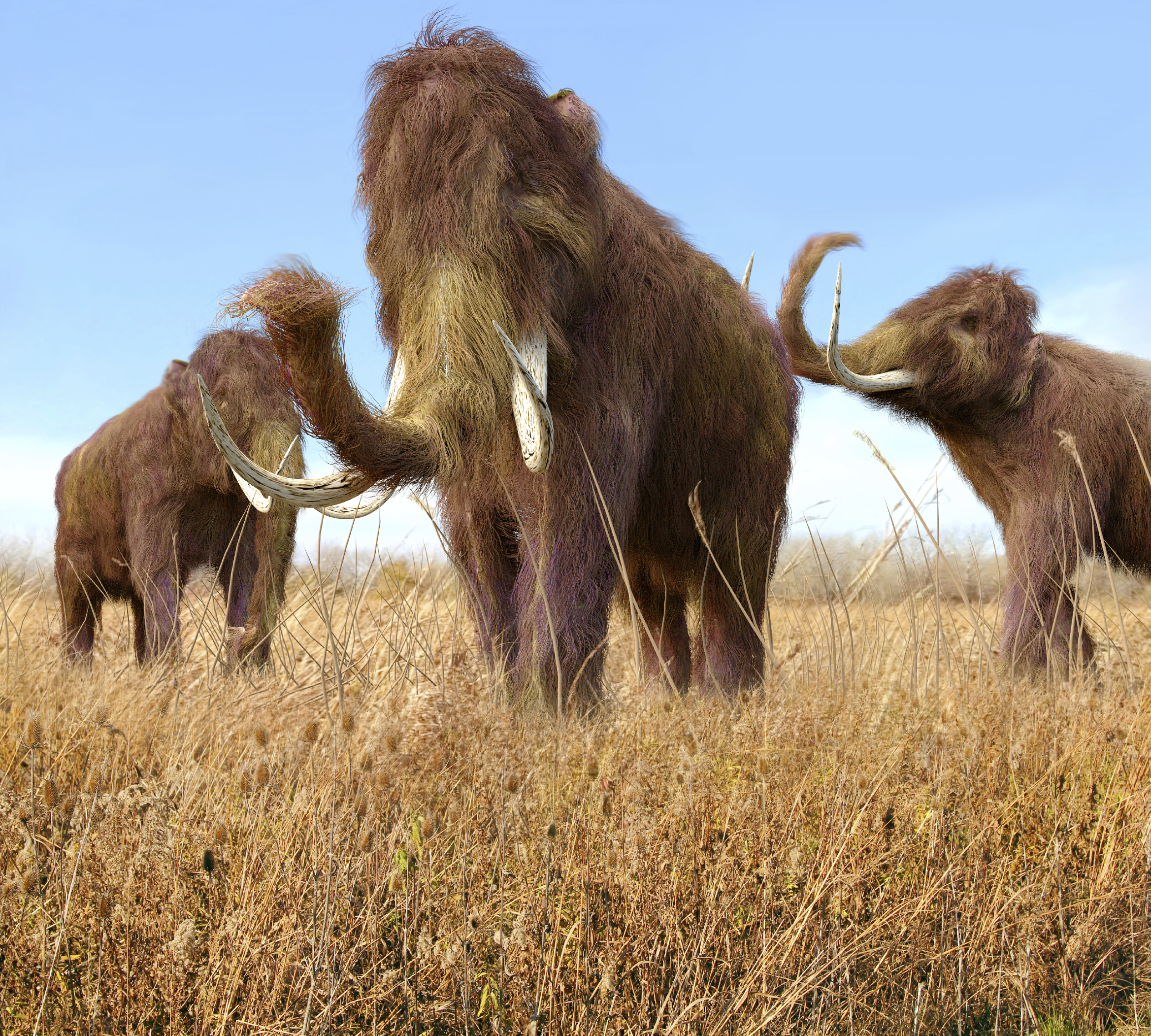Scientists say mankind, not climate, killed off the woolly mammoth, the saber-toothed tiger, and the giant armadillo

A free daily email with the biggest news stories of the day – and the best features from TheWeek.com
You are now subscribed
Your newsletter sign-up was successful
The verdict is finally in on an ancient murder mystery — and, surprise, surprise, humans are looking very guilty.
Many giant animals called megafauna — think saber-toothed tigers, woolly mammoths, and giant armadillos — went extinct thousands of years ago, but up till now, scientists haven't been sure whether it was climate change or humans who killed them off. But researchers from Exeter and Cambridge who ran a statistical analysis comparing the timing of the animals’ extinctions with the arrival of humans and changes in climate, reached the conclusion that mankind did most of the killing.
“As far as we are concerned, this research is the nail in the coffin of this 50-year debate — humans were the dominant cause of the University of extinction of the megafauna,” researcher Lewis Bartlett said. “What we don’t know is what it was about those earlier settlers that caused this demise.”
The Week
Escape your echo chamber. Get the facts behind the news, plus analysis from multiple perspectives.

Sign up for The Week's Free Newsletters
From our morning news briefing to a weekly Good News Newsletter, get the best of The Week delivered directly to your inbox.
From our morning news briefing to a weekly Good News Newsletter, get the best of The Week delivered directly to your inbox.
While researchers postulate that people could’ve hunted the animals for food or just driven them out of their native habitats, one thing is for sure: “It debunks the myth of early humans living in harmony with nature.” Looks like Cecil the lion was far from mankind’s first victim.
A free daily email with the biggest news stories of the day – and the best features from TheWeek.com
-
 Blue Origin launches Mars probes in NASA debut
Blue Origin launches Mars probes in NASA debutSpeed Read The New Glenn rocket is carrying small twin spacecraft toward Mars as part of NASA’s Escapade mission
-
 Dinosaurs were thriving before asteroid, study finds
Dinosaurs were thriving before asteroid, study findsSpeed Read The dinosaurs would not have gone extinct if not for the asteroid
-
 SpaceX breaks Starship losing streak in 10th test
SpaceX breaks Starship losing streak in 10th testspeed read The Starship rocket's test flight was largely successful, deploying eight dummy satellites during its hour in space
-
 Rabbits with 'horns' sighted across Colorado
Rabbits with 'horns' sighted across Coloradospeed read These creatures are infected with the 'mostly harmless' Shope papilloma virus
-
 Lithium shows promise in Alzheimer's study
Lithium shows promise in Alzheimer's studySpeed Read Potential new treatments could use small amounts of the common metal
-
 Scientists discover cause of massive sea star die-off
Scientists discover cause of massive sea star die-offSpeed Read A bacteria related to cholera has been found responsible for the deaths of more than 5 billion sea stars
-
 'Thriving' ecosystem found 30,000 feet undersea
'Thriving' ecosystem found 30,000 feet underseaSpeed Read Researchers discovered communities of creatures living in frigid, pitch-black waters under high pressure
-
 New York plans first nuclear plant in 36 years
New York plans first nuclear plant in 36 yearsSpeed Read The plant, to be constructed somewhere in upstate New York, will produce enough energy to power a million homes


